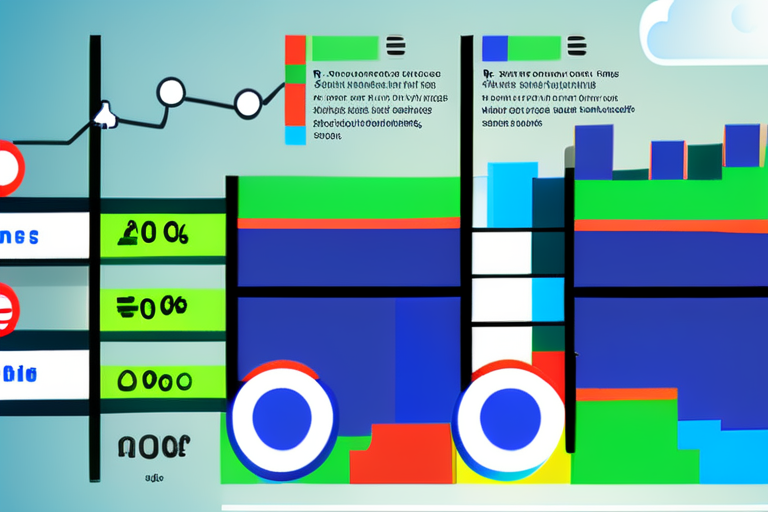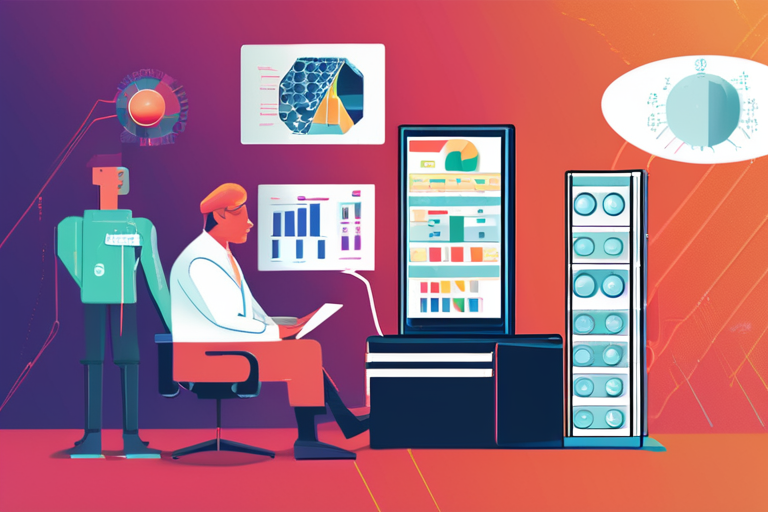Researchers Uncover Simple Way to Drastically Cut AI Energy Consumption
A team of researchers from the University of Cote d'Azur in France has discovered a straightforward method to significantly reduce the energy usage of artificial intelligence (AI) systems. By being more judicious in selecting the most energy-efficient AI models for specific tasks, it is estimated that 31.9 terawatt-hours of energy could be saved this year alone – equivalent to the output of five nuclear reactors.
According to a study published by Tiago da Silva Barros and his colleagues, switching from the best-performing to the most energy-efficient models for each task across 14 different AI applications, such as text generation, speech recognition, and image classification, could lead to substantial energy savings. The researchers used public leaderboards, including those hosted by Hugging Face, a machine learning hub, to evaluate the performance of various AI models.
"We estimated the energy consumption based on the size of the model, and this allowed us to try to do our estimations," da Silva Barros explained in an interview. "The results were surprising – we found that switching to more energy-efficient models could save a significant amount of energy."
AI systems rely heavily on data centers, which consume vast amounts of energy. In fact, it is estimated that the global AI industry's carbon footprint will continue to grow unless measures are taken to reduce its energy usage.
The study highlights the importance of considering the environmental impact of AI development and deployment. As AI becomes increasingly integrated into various aspects of modern life, from healthcare to finance, the need for sustainable and responsible AI practices has never been more pressing.
"This research shows that even small changes in how we use AI can have a significant impact on energy consumption," said Dr. Rachel Haot, an expert in AI ethics at New York University. "It's essential that we prioritize energy efficiency and sustainability in AI development to mitigate its environmental consequences."
The study's findings have significant implications for the future of AI development and deployment. As researchers continue to explore ways to make AI more energy-efficient, policymakers and industry leaders must also take steps to promote sustainable AI practices.
In the short term, the study's results suggest that organizations and individuals can make a tangible impact by selecting the most energy-efficient AI models for their specific needs. By doing so, they can contribute to reducing the environmental footprint of AI and promoting a more sustainable future.
The study's authors emphasize that further research is needed to fully understand the potential benefits of energy-efficient AI practices. However, the findings provide a clear direction for the development of more sustainable AI systems – one that prioritizes both performance and environmental responsibility.
Background:
Artificial intelligence (AI) has become an integral part of modern life, with applications ranging from virtual assistants to medical diagnosis. However, the rapid growth of AI has also raised concerns about its energy consumption and environmental impact. Data centers, which power AI systems, are among the largest consumers of electricity globally.
Additional Perspectives:
Dr. Haot notes that "the study's findings highlight the need for a more nuanced understanding of AI's environmental consequences and the importance of prioritizing sustainability in AI development."
da Silva Barros emphasizes that "while our research focuses on energy efficiency, it is essential to consider other environmental factors, such as e-waste generation and material extraction, when developing sustainable AI practices."
Current Status:
The study's findings have sparked interest among researchers, policymakers, and industry leaders. As the demand for more sustainable AI practices grows, organizations are beginning to explore ways to reduce their energy consumption.
Next Developments:
Researchers are already working on new projects aimed at developing even more energy-efficient AI models. Policymakers are also exploring initiatives to promote sustainable AI practices and reduce the environmental impact of AI development and deployment.
The study's results demonstrate that simple changes in how we use AI can have a significant impact on energy consumption. As the world continues to rely increasingly on AI, it is essential that we prioritize sustainability and responsible AI practices to mitigate its environmental consequences.
*Reporting by Newscientist.*



 Hoppi
Hoppi

 Hoppi
Hoppi

 Hoppi
Hoppi

 Hoppi
Hoppi

 Hoppi
Hoppi

 Hoppi
Hoppi











